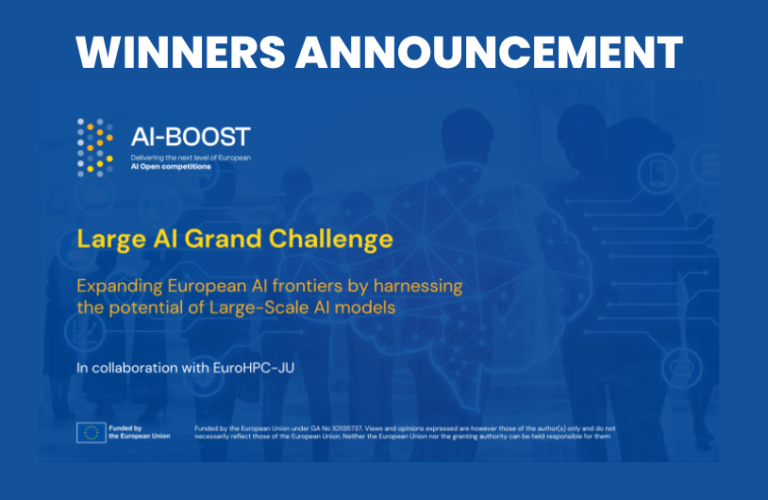Commissioner Thierry Breton today presented the awards to the winners of the Large-Scale AI Grand Challenge at a ceremony held at the Berlaymont in Brussels.
The winners are as follows:
Lingua Custodia (France) – Fintech company specializing in AI and natural language processing (NLP) for the financial sector. It aims to empower the fintech sector with solutions that are five times faster than current systems. Unbabel (Portugal) – Language technology company based in Lisbon. It combines AI and human translation to provide multilingual support, covering all 24 official EU languages. Tilde (Latvia) – Language technology specialist. It offers machine translation and AI-powered chatbots for Baltic-Slavic languages, spoken by 155 million people in the EU and its candidate countries. Textgain (Belgium) – AI startup helping businesses and governments gain insights from unstructured data through predictive text analytics. It focuses on analyzing hate speech, a major concern that has historically received little attention.
The four startups will receive a total prize of €1 million and access to 8 million GPU hours on two of the world’s leading EuroHPC JU supercomputers, LUMI and LEONARDO. The supercomputing hours awarded will be essential for the development of large-scale AI models over the next 12 months, reducing training times from years to weeks. After this period, the winners will be expected to release their models under an open source license for non-commercial purposes or publicly publish their research.
All these initiatives underline the broader innovation and strategic focus of AI development in Europe, addressing a range of areas such as linguistic inclusiveness, societal challenges and efficiency in different sectors.
A total of 94 proposals were received for the Large-Scale AI Challenge, demonstrating the competitive nature of Europe’s AI industry.
In addition to the competition organized by the European Commission, the initiative was so successful that the EuroHPC JU allocated additional computational time to the supercomputer MareNostrum 5 hosted by the Barcelona Supercomputing Center. Thus, the fifth-placed proposal from Multiverse Computing, a quantum computing startup focused on improving the energy efficiency and speed of large-scale language models, will be allocated 800,000 computational hours.
background
In November 2023, the Large AI Grand Challenge was launched to promote European innovation and excellence in large-scale AI models.
The Large-Scale AI Grand Challenge is a collaboration led by the EU-funded project AI-BOOST, in collaboration with the European Commission and the EuroHPC Consortium.
This initiative not only underlines the European Union’s commitment to fostering technological innovation, but also lays the foundations for a collaborative future in which Europe’s AI talent and resources are optimally utilized. This initiative is in line with the GenAI4EU initiative, which aims to create AI solutions that strengthen strategic sectors and the public sector within the EU.
The EuroHPC Consortium (EuroHPC JU) is a legal and funding body established in 2018 to enable the European Union and EuroHPC member countries to coordinate efforts and share resources to make Europe a global leader in supercomputing.
In order to equip Europe with a world-leading supercomputing infrastructure, the EuroHPC JU has already procured nine supercomputers across Europe.
European scientists and public sector and industrial users anywhere in Europe can benefit from these EuroHPC supercomputers through EuroHPC Access Calls, advancing science and supporting the development of a wide range of applications relevant to European industry, science and society.
In particular, the AI and Data-Intensive Application Access Call aims to help small and medium-sized enterprises (SMEs) and start-ups that require access to supercomputing resources to carry out artificial intelligence and data-intensive activities.
Recently overhauled by Council Regulation (EU) 2024/1732, the EuroHPC JU has received new powers for the development and operation of AI Factories. These comprehensive open AI ecosystems, centered around EuroHPC supercomputing facilities, will support the growth of a competitive and innovative AI ecosystem in Europe.


